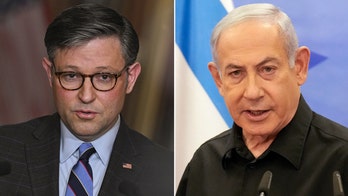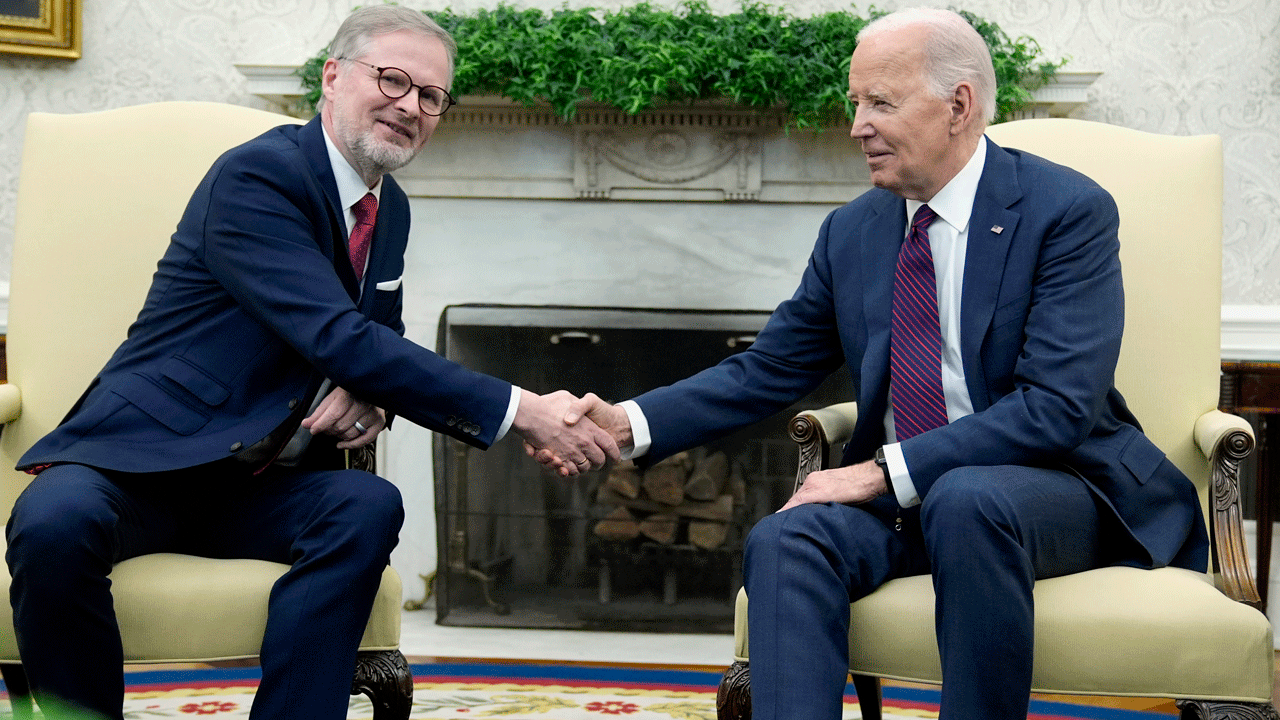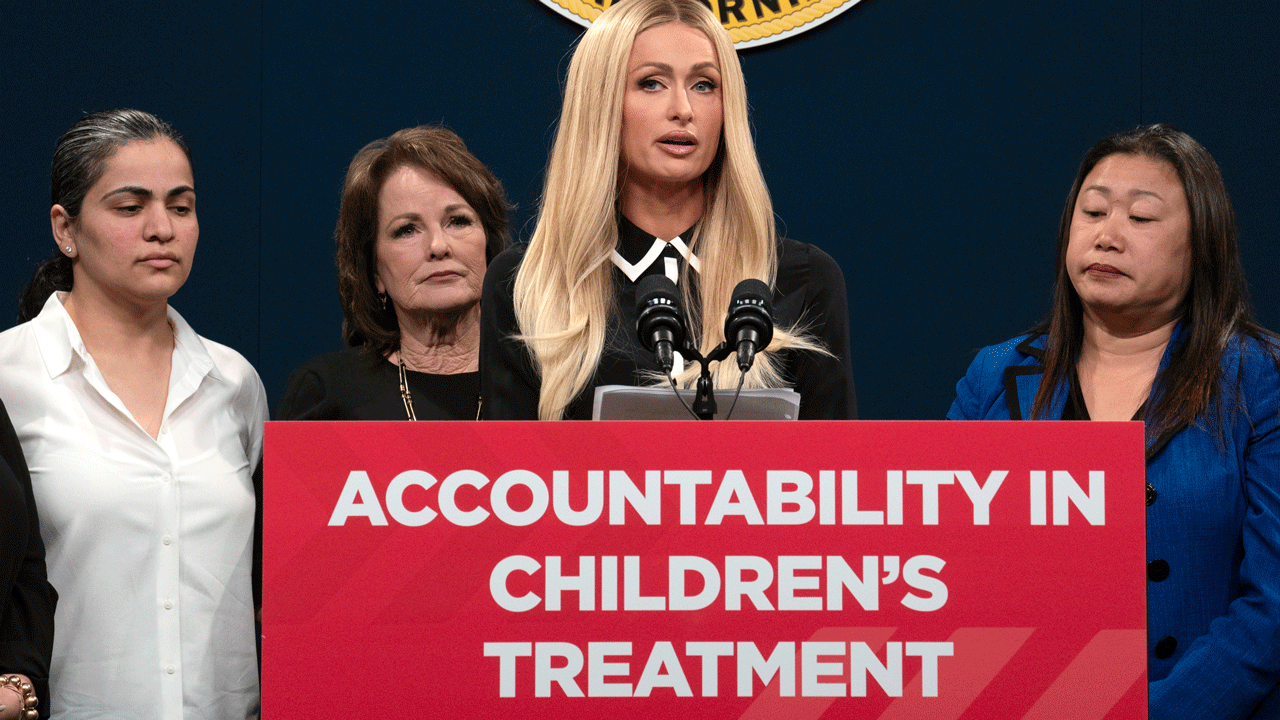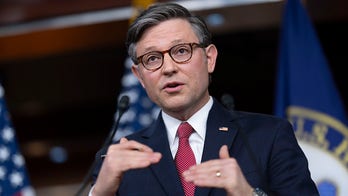After a day of testimony on Capitol Hill and weeks of conflicting accounts from the Obama administration regarding the deadly Libya attack, the frustration of boots-on-the-ground employees boiled over late Wednesday.
Scathing criticism from two former security officers for the U.S. mission in Libya surfaced at the close of an already-tense hearing before the House Oversight and Government Reform Committee.
During that hearing, senior officials continued to play down any suggestion that additional security forces could have prevented what was described as an "unprecedented" attack on Sept. 11.
But the two security officers indicated they were butting heads with higher-ups all along to try to secure more staffing.
"We were fighting a losing battle. We couldn't even keep what we had," said Lt. Col. Andrew Wood, former head of a 16-member U.S. military team that helped protect the embassy in Tripoli.
- CBS reporter slams administration for ‘major lie’ over weakened Taliban
- Downplaying Libya Attack Proves Fateful for Obama
- TIMELINE: New details of Sept. 11 consulate attack in Libya
- Records show calls for more protection in Libya, 230 ‘security incidents’ before strike
- State Department denies concluding film sparked consulate attack in Libya
The State Department's former regional security officer in the country, Eric Nordstrom, closed by recalling a conversation he had with a State official when asking for more agents on the ground. After being told he was asking for too much, Nordstrom recalled saying:
"'You know what (is) most frustrating about this assignment? It's not the hardships, it's not the gunfire, it's not the threats. It's dealing and fighting against the people, programs and personnel who are supposed to be supporting me.'
"And I added it by saying, 'For me, the Taliban is on the inside of the building.'"
Under Secretary of State for Management Patrick Kennedy, at a briefing assembled for reporters shortly after the hearing, directly responded to that remark.
"I was simply surprised to hear language like that used," he said.
Kennedy stressed the 16-member team led by Wood, while valued, was based in Tripoli and not Benghazi. He and others suggested that extending the team's assignment, which ended earlier this year, and granting Nordstrom the extra agents that we wanted would not necessarily have prevented the attack on the U.S. Consulate in Benghazi.
"The Department of State regularly assesses risk and allocation of resources for security, a process which involves the considered judgments of experienced professionals on the ground and in Washington, using the best information available," Kennedy said during the hearing.
"The assault that occurred on the evening of Sept. 11, however, was an unprecedented attack by dozens of heavily armed men," he said.
The security question, though, was only part of what lawmakers were probing on Wednesday.
Members of both parties were also trying to find out more about why administration officials initially claimed the attack was a spontaneous reaction to protests over an anti-Islam film, only to acknowledge later it was a coordinated terror strike.
Senior State officials, though, walked a fine line as they delivered the department's nuanced position. Lawmakers repeatedly pressed the witnesses to explain, as they offered what was by any objective measure a confusing account.
A State Department official had claimed Tuesday that the film link was "not our conclusion."
Yet Kennedy on Wednesday stood by U.S. Ambassador to the U.N. Susan Rice, who famously asserted a link between the film and the Libya attack on the Sunday after the assault.
"No one in the administration has claimed to know for certain all the answers. ... For example, if any administration official, including any career official, were on television on Sunday, Sept. 16, they would have said what Ambassador Rice said," Kennedy testified. "The information she had at that point from the intelligence community is the same that I had at that point."
This statement prompted a flurry of follow-up questions -- since Kennedy himself had told lawmakers on Sept. 12 that he thought the strike was coordinated.
Kennedy acknowledged Wednesday that was his personal opinion, only to deny moments later that his conclusion based on the information at hand was any different from Rice's.
Kennedy reiterated Wednesday that he and others were "drawing on the same intelligence information" that Rice used.
The ultimate explanation from Kennedy appeared to be that he and others -- regardless of their own personal opinions -- were drawing on faulty intelligence information, and didn't know it was faulty until days later.
Rep. Darrell Issa, R-Calif., chairman of the oversight committee, said Wednesday that it appeared the department was beginning "the process of coming clean."
White House Press Secretary Jay Carney, at a separate briefing, gave an explanation similar to Kennedy's.
"Initial assessments in the immediate aftermath of the attack in Benghazi were made and it was a government-wide assessment that the foundation of what Ambassador Rice said, what I said, and what others said," he said. "What we knew based on the limited facts we had available to us at that time."
The rest of the House hearing, the first held to date on the Libya attack, was devoted to security in Libya in the run-up to the attack.
Wood testified that "diplomatic security remained weak" through 2011.
"The (regional security officer) struggled to obtain additional personnel but ... was never able to attain the numbers he felt comfortable with," he said.
He told the panel that U.S. security was so weak that in April, only one U.S. diplomatic security agent was stationed in Benghazi.
Issa has alleged that the State Department turned aside pleas from its diplomats in Libya to increase security in the months and weeks before the attack in Benghazi.
Nordstrom addressed the diplomatic security issue in an Oct. 1 email to a congressional investigator. He said his requests for more security were blocked by a department policy to "normalize operations and reduce security resources."
Nordstrom, though, also said in written testimony that he felt most of his resource requests were considered "seriously and fastidiously" by the State Department.
A memo Tuesday by the Oversight Committee's Democratic staff provided details of Nordstrom's interview with the panel's investigators.
In that interview, Nordstrom said he sent two cables to State Department headquarters in March 2012 and July 2012 requesting additional diplomatic security agents for Benghazi, but he received no responses.
He stated that Charlene Lamb, the deputy assistant secretary for international programs, wanted to keep the number of U.S. security personnel in Benghazi artificially low. He said Lamb believed the Benghazi facilities did not need any diplomatic security special agents because there was a residential safe haven to fall back to in an emergency.
Lamb defended her assessment during the hearing, claiming that the team believed it had the "correct number of assets" in Benghazi at the time of the attack.
Issa took exception to this, saying that the statement "doesn't seem to ring true to the American people" given how quickly the attackers were able to breach the compound on Sept. 11.
Democrats at times suggested the Republican majority on the panel was politicizing the attack. They complained that they were given short notice of a recent trip to Libya, and of conversations between Republicans and witnesses.
"No good is done to the security of the United States to politicize this tragedy," said Rep. Gerry Connolly, D-Va.
Meanwhile, the White House said Wednesday that counterterrorism adviser John Brennan has met with Libya's president on a visit to Tripoli.
The White House says Brennan reinforced U.S. support for Libya as it continues a transition to democracy.
The Associated Press contributed to this report.





